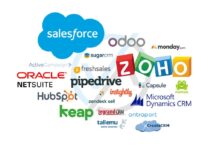CRM Based Platform: 7 Powerful Benefits You Can’t Ignore
In today’s fast-paced digital world, a CRM based platform isn’t just a luxury—it’s a necessity. From boosting customer engagement to streamlining sales, discover how this powerful tool transforms businesses.
What Is a CRM Based Platform?

A CRM based platform, or Customer Relationship Management platform, is a centralized system designed to manage all your company’s interactions with current and potential customers. It consolidates data from various channels—email, phone, social media, and website—into one accessible hub, enabling businesses to improve relationships, enhance customer service, and drive sales growth.
Core Components of a CRM System
Every effective CRM based platform consists of several foundational elements that work together to deliver value. These components ensure that businesses can capture, analyze, and act on customer data efficiently.
- Contact Management: Stores customer details such as names, emails, phone numbers, and interaction history.
- Sales Force Automation: Automates tasks like lead tracking, deal management, and pipeline forecasting.
- Marketing Automation: Enables targeted campaigns, email scheduling, and performance tracking.
- Customer Service & Support: Tracks service tickets, response times, and resolution rates.
- Analytics & Reporting: Provides dashboards and insights into customer behavior and business performance.
Types of CRM Platforms
Not all CRM based platforms are created equal. Depending on business needs, organizations can choose from different types:
- Operational CRM: Focuses on automating customer-facing processes like sales, marketing, and service. Examples include Salesforce and HubSpot.
- Analytical CRM: Emphasizes data analysis to understand customer behavior and improve decision-making. Tools like Microsoft Dynamics 365 offer robust analytics.
- Collaborative CRM: Enhances communication across departments by sharing customer information. Zoho CRM is a strong example.
“A CRM based platform is the backbone of modern customer-centric strategies.” — Gartner Research
Why Every Business Needs a CRM Based Platform
Whether you’re a startup or a multinational corporation, leveraging a CRM based platform can be a game-changer. It bridges the gap between departments, ensures data consistency, and empowers teams with real-time insights.
Improved Customer Retention
One of the most significant advantages of a CRM based platform is its ability to enhance customer retention. By tracking every interaction, businesses can anticipate needs, personalize communication, and resolve issues faster.
- Tracks customer purchase history and preferences.
- Enables proactive follow-ups and loyalty programs.
- Reduces churn by identifying at-risk customers early.
Enhanced Sales Efficiency
Sales teams spend less time on administrative tasks and more time selling when using a CRM based platform. Automation of lead assignment, follow-up reminders, and deal tracking increases productivity.
- Automates lead scoring and qualification.
- Provides real-time visibility into the sales pipeline.
- Integrates with email and calendar tools for seamless workflow.
Key Features of a Modern CRM Based Platform
Today’s CRM based platforms go beyond basic contact management. They are intelligent, scalable, and integrated ecosystems that support end-to-end customer lifecycle management.
Automation and Workflow Management
Automation is at the heart of a powerful CRM based platform. It eliminates repetitive tasks, reduces human error, and ensures consistency in customer engagement.
- Automated email sequences based on customer behavior.
- Task assignments triggered by specific actions (e.g., lead download).
- Approval workflows for quotes, discounts, or contracts.
Integration Capabilities
A CRM based platform must seamlessly connect with other business tools. Integration with ERP, marketing automation, e-commerce, and communication platforms ensures data flows smoothly across systems.
- Syncs with tools like Mailchimp, Slack, and QuickBooks.
- API access allows custom integrations with legacy systems.
- Supports single sign-on (SSO) for improved security and usability.
Mobile Accessibility
With remote work and on-the-go sales teams, mobile access to a CRM based platform is essential. Most modern platforms offer dedicated apps for iOS and Android.
- Access customer data and update records from anywhere.
- Receive real-time notifications about new leads or tasks.
- Offline mode allows data entry without internet connectivity.
Top CRM Based Platforms in 2024
The market is flooded with CRM solutions, but only a few stand out in terms of functionality, scalability, and user experience. Here are some of the most powerful CRM based platforms available today.
Salesforce: The Industry Leader
Salesforce remains the gold standard in CRM based platforms. With its extensive ecosystem of apps (AppExchange), AI-powered insights (Einstein Analytics), and global support, it’s ideal for large enterprises.
- Offers Sales Cloud, Service Cloud, Marketing Cloud, and more.
- Highly customizable with drag-and-drop tools.
- Strong integration with third-party applications.
Learn more at Salesforce Official Site.
HubSpot CRM: Best for SMBs
HubSpot CRM is a favorite among small and medium-sized businesses due to its user-friendly interface and free tier. It’s part of a larger inbound marketing suite that includes tools for content, SEO, and social media.
- Free CRM with essential features like contact management and email tracking.
- Seamless integration with HubSpot’s marketing and sales hubs.
- Excellent onboarding and educational resources.
Explore HubSpot at HubSpot CRM.
Zoho CRM: Affordable and Scalable
Zoho CRM offers a robust set of features at a fraction of the cost of competitors. It’s particularly popular among startups and growing businesses.
- AI-powered assistant (Zia) for predictive sales forecasting.
- Multi-channel communication (email, phone, social, chat).
- Strong workflow automation and customization options.
Visit Zoho CRM for more details.
How to Choose the Right CRM Based Platform
Selecting the right CRM based platform requires careful evaluation of your business goals, team size, budget, and technical capabilities. A poor choice can lead to low adoption, wasted resources, and missed opportunities.
Assess Your Business Needs
Start by identifying your primary objectives. Are you looking to improve sales productivity, enhance customer service, or scale marketing efforts? Define key performance indicators (KPIs) to measure success.
- Map out customer journey stages you want to optimize.
- Identify pain points in current processes (e.g., lost leads, slow response times).
- Determine required features (e.g., email integration, reporting).
Consider Scalability and Flexibility
Your CRM based platform should grow with your business. Choose a solution that allows you to add users, modules, and integrations as needed.
- Look for cloud-based platforms with automatic updates.
- Ensure the platform supports multi-language and multi-currency for global expansion.
- Check for API availability for future custom development.
Evaluate User Experience and Training
Even the most powerful CRM based platform will fail if users don’t adopt it. Prioritize platforms with intuitive interfaces and strong onboarding support.
- Request a free trial or demo to test usability.
- Check for available training resources (videos, webinars, documentation).
- Assess customer support quality (live chat, phone, ticketing).
Implementing a CRM Based Platform Successfully
Implementation is often where many organizations stumble. A well-planned rollout ensures high user adoption, data accuracy, and long-term success.
Data Migration and Cleansing
Moving existing customer data into a new CRM based platform requires careful planning. Poor data quality can undermine the entire system.
- Export data from current systems (spreadsheets, legacy software).
- Remove duplicates, correct errors, and standardize formats.
- Use import tools or professional services for smooth migration.
User Training and Change Management
Employees may resist change, especially if they’re used to old methods. A structured training program and clear communication are essential.
- Conduct role-based training sessions (sales, support, marketing).
- Appoint internal CRM champions to drive adoption.
- Provide ongoing support and feedback channels.
Monitoring and Optimization
After launch, continuously monitor usage and performance. Use analytics to identify bottlenecks and areas for improvement.
- Track login rates, data entry completeness, and feature usage.
- Collect user feedback to refine workflows.
- Regularly update dashboards and reports to reflect business goals.
Future Trends in CRM Based Platforms
The CRM landscape is evolving rapidly, driven by advancements in AI, machine learning, and customer expectations. Staying ahead of these trends ensures your business remains competitive.
AI and Predictive Analytics
Modern CRM based platforms are incorporating artificial intelligence to deliver smarter insights. AI can predict customer behavior, recommend next best actions, and automate responses.
- Salesforce Einstein predicts deal closure likelihood.
- HubSpot uses AI to suggest optimal email send times.
- Zia by Zoho detects anomalies in sales patterns.
Hyper-Personalization
Customers expect personalized experiences. CRM based platforms are leveraging data to deliver tailored content, offers, and communication at scale.
- Dynamic content in emails based on user behavior.
- Personalized landing pages and product recommendations.
- Behavioral triggers for timely engagement (e.g., cart abandonment).
Integration with Emerging Technologies
CRM systems are now integrating with IoT, chatbots, and voice assistants to capture data from new touchpoints.
- IoT devices feed usage data into CRM for proactive service.
- Chatbots collect leads and update CRM in real time.
- Voice assistants allow hands-free CRM access for field teams.
Common Challenges and How to Overcome Them
While CRM based platforms offer immense benefits, they also come with challenges. Recognizing these early helps in crafting effective mitigation strategies.
Low User Adoption
One of the biggest hurdles is getting employees to use the system consistently. Resistance often stems from complexity or lack of perceived value.
- Simplify the interface and focus on essential features first.
- Align CRM use with performance metrics and incentives.
- Provide continuous training and support.
Data Silos and Inconsistencies
When departments use different tools, data becomes fragmented. A CRM based platform should act as a single source of truth.
- Enforce data entry standards across teams.
- Integrate all customer-facing systems with the CRM.
- Use master data management (MDM) tools if needed.
Cost and ROI Concerns
CRM implementations can be expensive, and ROI may not be immediate. Clear planning and measurable goals are crucial.
- Start with a phased rollout to control costs.
- Track KPIs like sales cycle length, conversion rates, and customer satisfaction.
- Calculate long-term savings from automation and improved retention.
What is a CRM based platform?
A CRM based platform is a software system that helps businesses manage interactions with current and potential customers. It centralizes customer data, automates processes, and provides insights to improve sales, marketing, and customer service.
What are the main benefits of using a CRM based platform?
Key benefits include improved customer relationships, increased sales efficiency, better data visibility, enhanced team collaboration, and data-driven decision-making through analytics.
Which CRM based platform is best for small businesses?
HubSpot CRM and Zoho CRM are excellent choices for small businesses due to their affordability, ease of use, and robust feature sets. Both offer free tiers and scalable paid plans.
How much does a CRM based platform cost?
Costs vary widely. Free versions (like HubSpot CRM) are available, while enterprise solutions like Salesforce can cost $100+ per user per month. Implementation, training, and customization add to the total cost.
Can a CRM based platform integrate with other business tools?
Yes, most modern CRM based platforms offer extensive integration capabilities with email, marketing automation, ERP, e-commerce, and communication tools via APIs or native connectors.
Adopting a CRM based platform is no longer optional—it’s a strategic imperative. From streamlining operations to delivering personalized customer experiences, the right platform can transform how your business engages with its audience. By understanding the core features, evaluating top solutions, and planning a thoughtful implementation, you can unlock long-term growth and competitive advantage. The future of customer relationship management is intelligent, integrated, and insight-driven. Is your business ready?
Recommended for you 👇
Further Reading:






